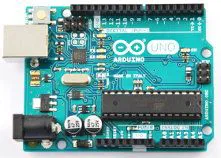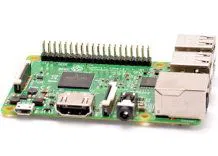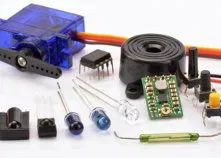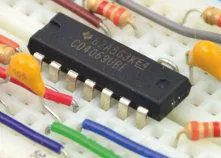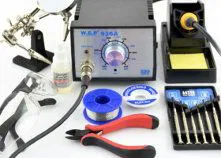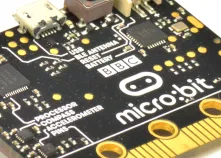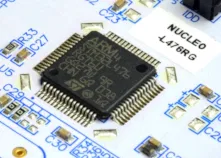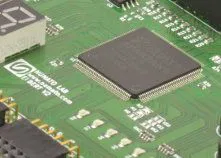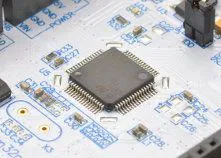Table of Contents:
- 1 Basic information about laboratory power supplies
- 2 Laboratory power supplies - applications
- 3 Functions of laboratory power supplies
- 4 Power supply construction technology
- 5 What to look for when choosing a laboratory power supply?
- 6 What else should a lab power supply have?
- 7 Single-channel and multi-channel laboratory power supplies
Laboratory power supplies are specialized devices that provide electricity and allow precise regulation of its parameters (mainly current and voltage). This type of equipment is indispensable in any electronics workshop when diagnosing, servicing and repairing electronics. In addition, it is used in prototyping and DIY projects. Laboratory power supplies eliminate the need to use a variety of power supplies, the electrical parameters of which are fixed (they are not adjustable). What else is worth knowing about such power supplies? What additional functions do they have? What else can they be used for?
Basic information about laboratory power supplies
Laboratory power supplies are one of the most important pieces of equipment in any electronics laboratory.
The ability to regulate current and voltage over wide ranges, combined with their ability to regulate current and voltage and the ease of reading parameters, make such equipment used by engineers, technicians and hobbyists involved in electronics.
Laboratory power supplies - applications
Laboratory power supplies are commonly used in electronics workshops, among other things for designing new devices. They provide a stable power source tailored to the requirements of specific design requirements.
In addition, they are used during the assembly and calibration of electronic equipment.
They also allow precise adjustment of power supply parameters when assembling devices.
Other areas where laboratory power supplies are commonly used are testing and diagnostics.
They make it possible to check the functionality and performance of individual electronic components and entire systems.
Functions of laboratory power supplies
Modern power supplies can be used as a constant-current or constant-voltage source. Most models have built-in digital segment displays for easy and quick reading of current output parameters. In addition, they are equipped with overvoltage, short-circuit and overload protection to protect both the power supply and the powered devices.
Power supply construction technology
The technology of power supply construction has a direct impact on its performance and application. Impulse devices are distinguished by their smaller size and weight, but they can generate noise that is sensitive to some circuits. In contrast, linear power supplies are ideal for powering analog circuits. They provide stable voltage without generating interference.
What to look for when choosing a laboratory power supply?
First of all, pay attention to the adjustment range of voltage (e.g. 0 to 30 V) and current (e.g. 0 to 30 A). Selected models are equipped with two potentiometers (e.g., Coarse and Fine) for fine-tuning the output parameters. This is a practical solution to prevent excessive changes in output voltage and current.
It is also worth checking whether the device is equipped with voltage and amperage stabilization modes. Another practical solution is a USB socket (e.g. type A) for both wired communication and powering, for example, mobile devices.
When it comes to safety issues, the power supply should be equipped with comprehensive protection and protection of connected devices. Complete protection includes:
- OCP – overcurrent protection,
- OVP – overvoltage protection,
- OTP – thermal protection,
- OPP – overload protection.
What else should a lab power supply have?
A sufficiently efficient fan to ensure effective cooling of the device regardless of the ambient temperature and a special handle to make the power supply easy to carry are other important elements. An important parameter is the output power, which can be, for example, 300 W. In kits, in addition to the main device and power cable, you can usually find crocodile-type, banana-type or combinations of these connectors.
Laboratory power supply is an advanced device that, thanks to its precision, functionality and safety features, will find use in any electronic laboratory. Its adjustability, along with additional features such as a USB port and built-in safety features, make it an indispensable tool for anyone.
When choosing the right laboratory equipment, it is crucial to consider future requirements and applications.
Among the power supplies available on the market, there are models that offer multiple output channels, which extends their functionality.
Such multi-channel power supplies allow the user, for example, to provide symmetrical power to a connected device or to power multiple devices simultaneously.
This flexibility makes them particularly useful in complex electronic work.
Single-channel and multi-channel laboratory power supplies
Laboratory power supplies Single-channel have only one output channel. They are devices designed to provide stabilized power to a single device or circuit. Their main advantages are simple operation, intuitive use and precision.
This combination makes them an ideal choice for applications requiring a stable and precisely controlled power source.
In contrast, multichannel laboratory power supplies offer greater versatility in application. With several built-in (completely independent of each other) input channels, they can be successfully used to provide regulated power to various current consumers. Each of them may have different power supply requirements. This makes multi-channel power supplies better suited for complex tasks where multiple circuits or devices need to be powered simultaneously at the same time.
The ability to provide symmetrical power is particularly valuable in testing and building electronic circuits that require positive and negative power simultaneously.
How useful was this post?
Click on a star to rate it!
Average rating 0 / 5. Vote count: 0
No votes so far! Be the first to rate this post.






